[vc_row][vc_column][vc_column_text]
NHMC, along with the Leadership Conference on Civil and Human Rights and other organizations sign letter to Congressional Leadership: Affordable Broadband Needed for Public Health, Economic Security View PDF of this Letter April 14, 2020 Dear Majority Leader McConnell, Minority Leader Schumer, Speaker Pelosi, and Leader McCarthy: On behalf of The Leadership Conference on Civil and Human Rights and the undersigned organizations, we write to urge Congress to provide a low-income broadband benefit as part of the forthcoming Phase 4 COVID-19 package. The United States is facing an unprecedented emergency, with nearly all people in the nation – from seniors to children – required to work, learn, and meet daily needs while staying at home. The need for connectivity across the country has never been greater, exacerbating the consequences of the existing digital divide, even as fewer people will be able to afford broadband during the crisis. Therefore, we seek $2 to 3 billion per month for the duration of the COVID-19 emergency to support access to broadband that is adequate to meet the needs of multiple people sheltering-in-place while working and learning via video technology simultaneously. Affordable broadband is critical to:
In the near term, broadband Internet access is necessary for health care, employment, civic engagement, education, and more. We strongly urge Congress to ensure that future COVID-19 legislation and actions address this critical need. Thank you for your consideration of our views. If you have any questions about the issues raised in this letter, please feel free to contact Media/Telecommunications Task Force Co-Chairs Cheryl Leanza, United Church of Christ, Office of Communication, Inc., at cleanza@alhmail.com, and Kate Ruane, American Civil Liberties Union, at kruane@aclu.org, or Corrine Yu, Leadership Conference Senior Program Director, at yu@civilrights.org.
Sincerely,
The Leadership Conference on Civil and Human Rights
ACCESS
AFL-CIO
African American Ministers In Action
Alianza Nacional de Campesinas
American Civil Liberties Union
American Council of the Blind
American Federation of Teachers
American Physical Therapy Association
Andrew Goodman Foundation
Arab American Institute (AAI)
The Arc of the United States
Asian Americans Advancing Justice | AAJC
Asian Pacific American Labor Alliance, AFL-CIO
Association for Education and Rehabilitation of the Blind and Visually Impaired
Association of Assistive Technology Act Program
Augustus F. Hawkins Foundation
Autistic Self Advocacy Network
Bend the Arc Jewish Action
Center for Law and Social Policy (CLASP)
Center for Responsible Lending
Center for Security, Race and Rights
Clearinghouse on Women’s Issues
Common Cause
Communications Workers of America
Council of Parent Attorneys and Advocates
Demos
Disability Rights Education & Defense Fund
Equal Justice Society
Equal Rights Advocates
Equality California
Fair Count
Feminist Majority Foundation
Futures Without Violence
Girls Inc.
GLSEN
In Our Own Voice: National Black Women’s Reproductive Justice Agenda
Institute for Intellectual Property and Social Justice
Japanese American Citizens League
Jeremiah Program
Justice for Migrant Women
Justice in Aging
Lambda Legal
League of Women Voters of the United States
Matthew Shepard Foundation
MediaJustice
NAACP
NAACP Legal Defense and Educational Fund, Inc.
National Action Network
National Alliance for Partnerships in Equity (NAPE)
National Association of Councils on Developmental Disabilities
National Association for Latino Community Asset Builders
National Center for Learning Disabilities
National Center for Lesbian Rights
National Center for Transgender Equality
National Center for Youth Law
National Coalition for Literacy
National College Attainment Network
National Consumer Law Center, on behalf of its low-income clients
National Disability Rights Network
National Employment Law Project
National Employment Lawyers Association
National Fair Housing Alliance
National Hispanic Media Coalition
National Indian Education Association
National Organization for Women
National Partnership for Women & Families
National Women’s Law Center
NETWORK Lobby for Catholic Social Justice
OCA-Asian Pacific American Advocates
People For the American Way
PFLAG National
Rock the Vote
Shriver Center on Poverty Law
Sierra Club
Silver State Equality-Nevada
Texas Progressive Action Network
uAspire
UnidosUS
United Church of Christ, Justice and Witness Ministries
United Church of Christ, OC Inc.
United Sikhs
U.S. Human Rights Network
[1] Thirty-eight million people are eligible for Lifeline. Universal Service Administrative Company, Program Data, Lifeline Participation, https://www.usac.org/lifeline/learn/program-data/. Secretary Mnuchin predicted as many as 32 million people in the U.S. could be unemployed if Congress failed to respond to the coronavirus pandemic. Chris Cillizza, What a 20% unemployment rate would actually mean, CNN (March 18, 2020).
